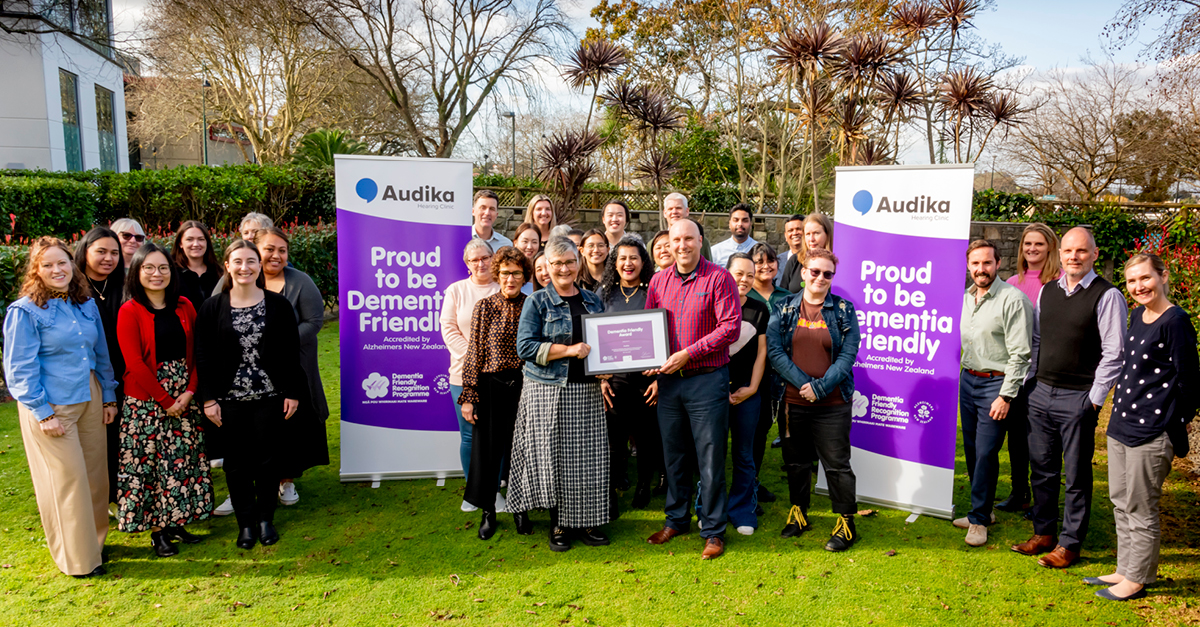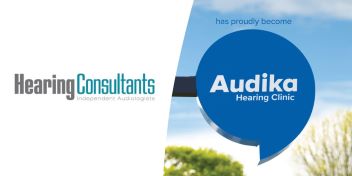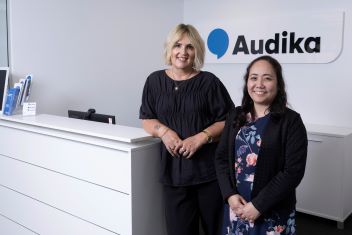Dementia Friendly accreditation a nation-wide first
AUCKLAND, 17 July 2023: Leading hearing healthcare provider, Audika NZ, is proud to announce that it has become the first hearing healthcare provider in New Zealand to achieve Dementia Friendly accreditation as part of Alzheimers New Zealand’s Dementia Friendly Recognition Programme. This accreditation recognises Audika NZ’s commitment to embedding dementia friendly practices throughout the organisation, ensuring the provision of accredited dementia friendly services to clients, whānau, visitors, and staff.
To receive the accreditation, Audika NZ underwent a two-year process of becoming dementia friendly in preparation for a formal audit that included a comprehensive review of its clinics. The audit assessed Audika NZ's engagement with local Dementia or Alzheimers organisations, staff inductions and trainings, and the display of information. Audika NZ successfully met the criteria and demonstrated its dedication to providing dementia friendly care.
"At Audika, our purpose is to provide personalised hearing care, understanding that every individual is unique and that there is no one-size-fits-all solution," said Michael Severn, General Manager at Audika NZ. "Becoming Dementia Friendly aligns perfectly with our purpose, as it allows us to support and serve all members of the community, including those living with dementia."
By equipping staff with the necessary tools and knowledge, the organisation aims to create safe, friendly, and accepting environments for those living with dementia.
According to a 2020 report by the Lancet Commission, hearing loss can be associated with cognitive decline and increases the risk of developing dementia1. In fact, moderate hearing impairment can triple one's risk of dementia2. Audika NZ hopes that by raising awareness about this connection, more people will seek treatment for hearing loss and receive the support they need.
Currently, there are approximately 70,000 people in New Zealand living with dementia, and this number is expected to rise to 170,000 by 2050. Early treatment of hearing loss could potentially reduce the risk of developing dementia. To address this growing concern, Audika NZ believes that fostering conversations about hearing loss and promoting the benefits of early treatment is crucial.
Alzheimers NZ Chief Executive, Catherine Hall, says dementia mate wareware is likely to affect four out of five Kiwis in some way and at some point.
“A diagnosis of dementia mate wareware can be extremely challenging and not just for the people it affects, but also for whānau and friends. So, we are pleased to have worked alongside Audika NZ on its accreditation process.
"It’s great to see the dedication from organisations like Audika to help those living with dementia mate wareware.”
Audika NZ's achievement of Dementia Friendly accreditation highlights its commitment to providing inclusive and compassionate care to all individuals, including those living with dementia. By embedding dementia friendly practices throughout the organisation, Audika NZ is setting a new standard for hearing care in New Zealand.
ENDS
For more information contact:
Christian Novak – Acumen on behalf of Audika New Zealand
M: +64 21 592 519
E: cnovak@acumennz.com
About Audika Group:
Audika New Zealand is part of the Demant Group, a world-leading hearing healthcare group that offers solutions and services to people with hearing loss.
It provides end-to-end hearing health care services, from diagnostic equipment and hearing devices to hearing healthcare delivered by qualified clinicians. Audika is one of New Zealand’s largest hearing healthcare providers, operating more than 30 clinics across the North and South islands.
At Audika, we believe everyone should have access to exceptional hearing healthcare.
Please visit audika.co.nz for more information.
1 https://www.thelancet.com/journals/lancet/article/PIIS0140-6736(20)30367-6/fulltext
2 https://pubmed.ncbi.nlm.nih.gov/21320988/




